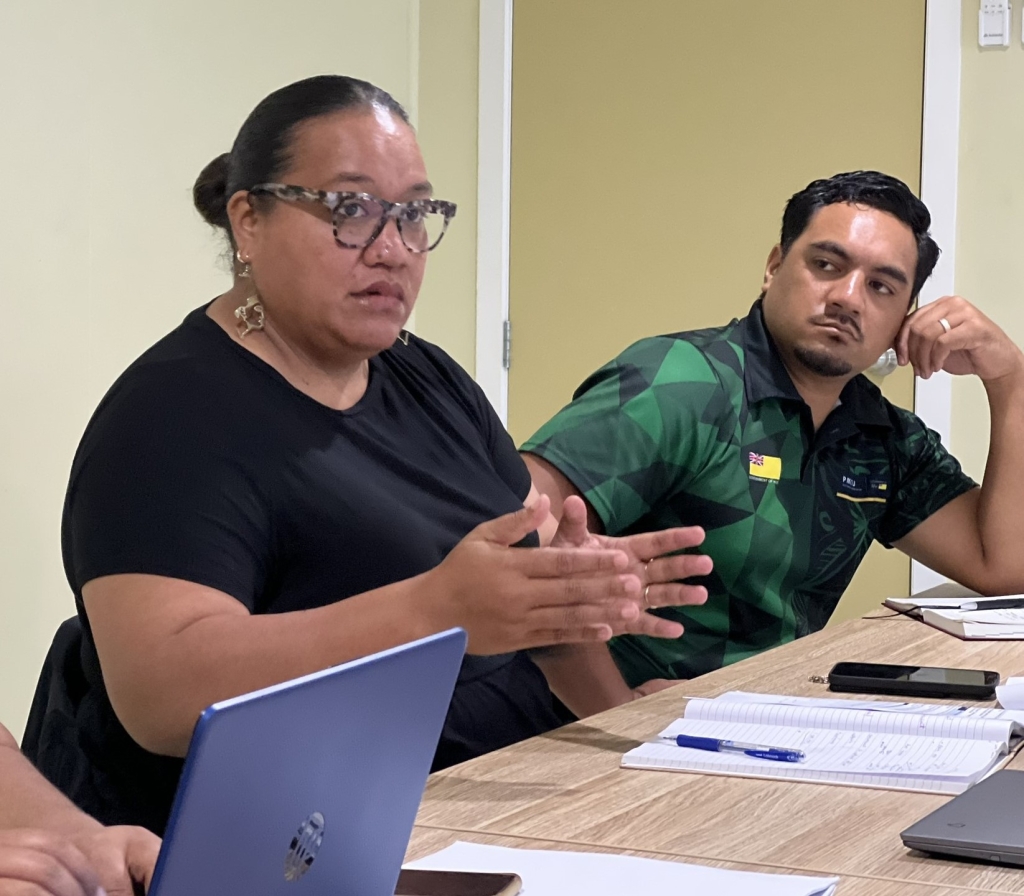
2 April 2024, Alofi, Niue – It was once the sacred swimming spot for Niuean royalty, today it is a popular destination for both locals and visitors alike, but the magical Matapa Chasm now faces a menacing threat in the form of a foreign object: plastic.
At the seat of the two towering cliffs that encompass the chasm, a plastic water bottle and cup lies at the edge of the abyss. Just 500 meters away at the starting point of the chasm track are signs that request people to help preserve Niue’s natural and pristine environment, by taking the rubbish back with them or disposing it in one of the rubbish bins provided. Yet there’s litter.
In 2020, Niue legislated a ban on single-use plastics. To expand the legal measures to deal with single-use plastics and to address the plastic waste problem on the island, Niue is partnering with the Secretariat of the Pacific Regional Environment Programme (SPREP) and the Australian Government in implementing the Pacific Ocean Litter Project (POLP) in Niue.
A diverse range of stakeholders from government, industry, partner agencies and community representatives have been consulted to share views on what Niue could do to address the plastic waste problem and support Niue’s effort towards a plastic-free future.
Niue’s Minister of Natural Resources, Agriculture, Fisheries, Forestry, Meteorological Services and Environment, Honourable Mona Ainu'u acknowledged the role of the ocean in sustaining life in the Pacific and called on everyone to play their part in its protection.
“When we talk about living in a resilient place, we expect that we're doing the most that we can to protect our moana, our ocean and her ecosystems. Our very livelihoods, from food to culture, hinge upon the health of our coastal waters. It's heartbreaking to see the toll pollution has on our precious marine life and habitats. Anything that has a right to be in their habitat should be allowed to be there without having these challenges,” the Minister said.
“I commend initiatives like the POLP project for its commitment to safeguarding our ocean's health, to ensure that our ocean stays the way it should be. As a woman and a mother, I recognise the urgency of educating our younger generations about the detrimental impact of pollution and helping them understand that pollution does not have any space at all in our ocean.
“I would be absolutely heartbroken if my great grandchildren are not able to enjoy what I am enjoying now,” the Minister added
Niue has long championed sustainability and environmental protection. All of its ocean territory, from coastline to the edge of its exclusive economic zone is under the protection of a Marine Spatial Management Plan, Niue Nukutuluea. It is also the world's first and only accredited dark sky nation emitting the lowest level of light pollution in the world for a country.
Australia’s High Commissioner to Niue, Her Excellency Katy Stuart, reaffirmed Australia’s commitment in the global fight to solve plastic pollution and its commitment for a plastic pollution-free Pacific.
“Australia recognises the importance of addressing the plastic pollution facing our planet and oceans. We are pleased to be a friend and partner to the Pacific in our collective efforts to solve this. We are excited to support the POLP project in its efforts to implement innovative solutions to phase out single-use plastics in Niue and help change the behaviour of plastics users, consumers and producers on the path to a plastic pollution-free Pacific,” Her Excellency Stuart said.
“Australia has also invested in Niue’s waste management infrastructure to collect, segregate, and dispose of plastic waste. These systems have been established to mitigate the proliferation of plastic debris in Niue’s pristine marine environment.”
In 2023, at the SPREP Environment Ministers’ High Level Talanoa in Apia, Samoa, Australia’s Minister for the Environment and Water, the Honourable Tanya Plibersek said she “wants to see a plastic pollution-free Pacific in our lifetimes”.
It would not be a quantum leap for Niue to be the world's first Plastic Free country given its size and population. Especially if plastic-free were defined to mean the elimination or proper management of the avoidable and unnecessary single-use plastics identified under the POLP where there are substitutes that can be used in their place immediately.
About POLP
To combat the problem of plastic litter in the ocean, Australia is partnering with SPREP and Pacific Island countries to implement a seven-year (2019-2027) $16 million, Pacific Ocean Litter Project (POLP). POLP will support the phase-out of specific types of single-use plastics from land-based sources, including household litter and tourism waste. It will also support behaviour change in the users, consumers and producers of plastics and the introduction of alternative products.
For more information on POLP, visit: www.sprep.org/polp